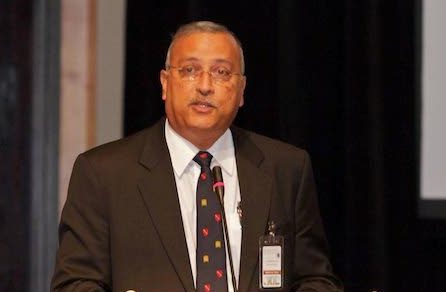Constitution Reform Committee: People feel excluded, powerless

WAYS must be found to stop people feeling excluded from the running of the country, urged the Report of the National Advisory Committee on Constitutional Reform dated July 2024, published on August 15.
The committee, under former speaker Barendra Sinanan, SC, held town meetings across Trinidad and Tobago to help formulate terms of reference for a formal consultation on constitutional reform, proposed as a week-long national constitutional conference.
"There is a powerful demand for a more democratic society, where citizens have more say and more control," the executive summary said.
"The demands for and fixed dates for elections, a right of recall, referendums, and for a directly elected president are evidence of this."
The committee considered TT's economic, social and political developments since 1976.
"While some economic and social progress has been achieved, it has not been sufficient to ameliorate the social conditions for many who live in absolute poverty, including the circumstances that have drawn many into crime."
Further, TT's progress has not overcome outdated colonial systems which fetter relevant responses to such problems.
"Inefficiency, mediocrity, the dysfunctional political culture, and conflicts between and among high office-holders have compounded the difficulties and inhibited reform or the resolution of prevalent challenges."
The summary listed themes emerging from the hundreds of submissions made via e-mail or live at town meetings.
Firstly, people want "an expanded set of rights" relating to the environment and to economic, social and cultural rights, plus the protection of rights of indigenous peoples and "an end to discrimination based on disability, place of residence, and sexual orientation."
Secondly, the society wants "some form of proportional representation, so people's votes at elections are not wasted."
Citizens thirdly want a higher level of accountability from officials in Parliament, the Judiciary, the Executive and the independent/"fourth branch" bodies..."This includes a strong demand for more separation of powers plus limits on the number of ministries and the number of ministers drawn from Parliament.
"Some expressed support for the idea of an executive president and were insistent about a president who is not politically appointed."
Fourthly, people want the Constitution to curb corruption including having limits for office-holders plus a stronger investigation/prosecution of corruption.
"Citizens want to see a more efficient and responsive public service, and recommend reform of the service commissions.
"Citizens also recommended campaign-finance reform, a non-political speaker of the House, elected senators, entrenching local government in the Constitution, and the need for MPs to be full-time members."
The committee crafted its proposals for constitutional reform by considering the current submissions, plus proposals from the Ramadar (2013), Clarke (2009) Principles of Fairness (2006), Hyatali and Wooding Reports.
The working document made nine suggestions.
"Foster national identity and cohesion by articulating our national values and aspirations in a revised preamble which is owned by ‘We the People’ of TT."
The second proposal was to expand the charter of rights to include economic, social and cultural rights; expand the legal rights which provide for due process and equal protection of the law; outline citizens' duties and responsibilities; and guide state policy formation.
Thirdly, the document urged, "Establish genuine sovereignty and republicanism by removing the savings-law clause, abolishing appeals to the Privy Council and acceding to the appellate jurisdiction of the Caribbean Court of Justice, and redefining the territory of TT consistent with its archipelagic status."
The savings clause, at TT's Independence, said old laws would not be swept out by new constitutional rights.
Fourthly, the report proposed a greater separation of powers by strengthening judicial independence and parliamentary oversight; recognising the Industrial Court, Tax Appeal Board and Equal Opportunity Tribunal in the Constitution; and enhancing the Judicial Service Commission to include all judicial offices and the Director of Public Prosecutions.
The fifth proposal was better representation by strengthening Parliament by retaining the first- past-the-post system of election to the House of Representatives, limiting the number of ministers and ministries, and expanding the Senate to be elected by proportional representation, while requiring higher qualifications for appointment.
Sixthly, the document wanted to effect greater accountability and transparency from the Judiciary and independent institutions; and to provide for an elected president.
The seventh proposal was to strengthen democratic values by giving greater voice to the citizenry by devolution of executive and law-making power to the Tobago island government and preparing local government for greater responsibility.
Eighthly, the document urged a more efficient public service by new legislation and regulations to govern it, by instituting a "cabinet manual" stating the roles and responsibilities of ministers and permanent secretaries; and by delegating to the permanent secretaries the appointment, transfer, promotion, and discipline of officers not engaged in policy.
The ninth proposal was to return the Police Service Commission to its former method of selection of the Commissioner and Deputy Commissioners of Police; clarify the President’s power of pardon; restructure the Advisory Committee on Pardon; and widen the scope of the Integrity Commission.

Comments
"Constitution Reform Committee: People feel excluded, powerless"